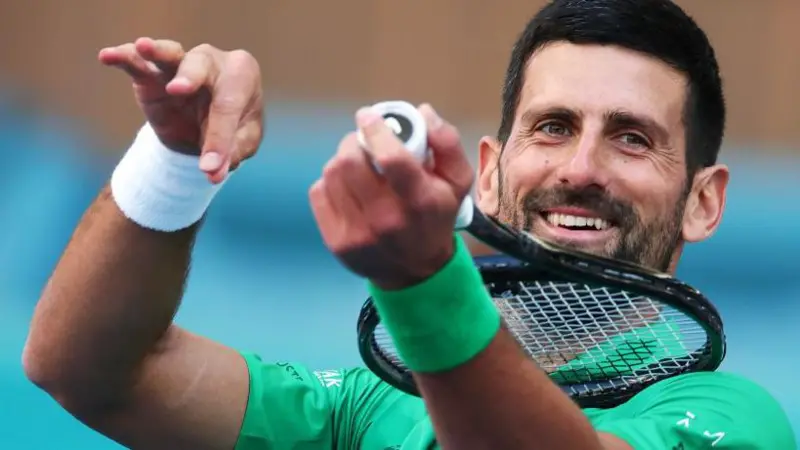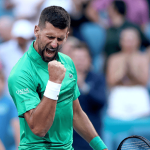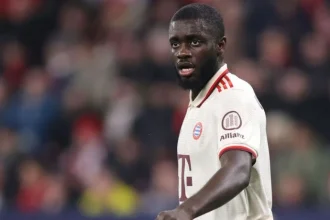When asked on Sunday why he had never beaten Novak Djokovic in 10 attempts, Taylor Fritz gave a straightforward answer:
“I think the first, almost like seven or eight times I played him, I probably just wasn’t a good-enough player to really have that much of a chance.”
Fritz has certainly improved since then, demonstrating his growth by pushing Djokovic to four competitive sets in Tuesday night’s US Open quarterfinal. Yet, despite the intense battle, the final outcome was the same: Djokovic was simply the better player, prevailing 6-3, 7-5, 3-6, 6-4.
The two men share similarities—they both wore black on court, have lanky yet powerful frames (Fritz at 6’5”, Djokovic at 6’2”), and rely on semi-Western forehands and two-handed backhands, mostly rallying from the baseline. But Djokovic edges Fritz in nearly every area: longer rallies, more precise shot placement near lines and corners, superior court coverage, and a sharper return game. While Fritz’s serve generated more aces and won a slightly higher percentage of first-serve points, Djokovic was far more effective under pressure, saving 11 of 13 break points compared to Fritz’s five of nine.
This left Fritz facing a tough strategic dilemma: Should he use his pace to try ending points quickly, or should he extend rallies and rely on his youth against Djokovic’s experience? According to Fritz’s coach, Michael Russell, he chose to attack early, a tactic that got him closer than ever but not quite close enough.
Fritz’s nerves showed early with missed first serves and overhit forehands, leading to an early break against him. Though he stabilized and fought back, he never reclaimed that initial deficit. A critical moment came with Djokovic serving at 5-4 in the second set, facing five break points—and saving them all with aggressive play.
“In many of my service games I was just trying to stay alive, fight for every ball,” Djokovic said. “He was aggressive, staying close to the line, not easy to play him.”
Fritz earned several break points of his own in the second set, finally converting one to level at 5-5. The crowd roared as Fritz pumped his fist, but the momentum quickly shifted when he double faulted twice, losing the chance to seize the set. Djokovic then served out the set and gained a crucial two-set lead.
“I was lucky to save some crucial break points in the second set,” Djokovic acknowledged. “For most of the second and third set, he was the better player.”
Fritz earned credit for his resilience—raising his serve, capitalizing on a brief dip in Djokovic’s focus, and pushing the match to a fourth set. The two battled evenly through the first eight games of the final set, but Djokovic, sensing the importance of the moment, elevated his game. Holding at love at 4-4 and then enduring a grueling final game on Fritz’s serve at 4-5, Djokovic sealed the win on his third match point.
“It was an incredibly close match, really anybody’s match,” Djokovic reflected. “In these kinds of matches, a few points decide the winner. Luckily, it went my way at the end of the fourth. That last game was nerve-wracking.”
For Fritz, it was more of the same frustration: he couldn’t seize the critical points that might have turned the match.
“That’s one of the things that makes the great players great—they win the big points,” Fritz said. “I knew I had to go out and take those points from him. He’s not just going to hand them over.”
He added, “A lot of my weapons—my aggressive shots—just weren’t there when I needed them, which made it tough to take those points.”
Djokovic, unusually subdued in victory, was partly weighed down by earlier clashes with the crowd.
“I wear my heart on my sleeve,” he said. “I’m really proud of the fight I put in.”
But his mind is already on the next challenge—a semifinal showdown with World No. 2 Carlos Alcaraz in two days’ time.














